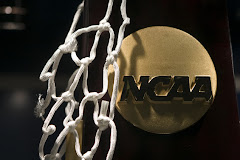
A great way to gain knowledge as a coach is to read as much as possible. The books do not have to be related to sports and some of the best books that I have read have nothing to do with sports but have a great message that you can share with your athletes. As I navigate through the last few chapters of
Jim Collin’s book,
“Good to Great: Why Some Companies Make the Leap... and Others Don't” there are some teaching tools that not only can be applied to business but also an athletic program.
The main purpose of the book is quite simple it guides the reader through the process of how companies made the giant leap from being good companies to great companies, and how they went about doing this. One of the points Collin’s makes in the book is that a level 5 leader whatever he\she touches anything he takes pride in it even after they are long gone. He is saying that for whatever reason a level five leader leaves a company they always will leave it in good hands and with the greatest opportunity to succeed.
I really like this point because now that we are nearing the ending of the college basketball season there is a great deal of hiring and firing. I always think to myself how many coaches will regardless of the reason for leaving; will leave the program in good shape or at least help the new coach to have an easy transition. The great leaders according to Collins always want to be able to look back at their previous companies and see continued success. A person wants to be able to look back and say “I was a part of something great, and continues to be great after I’m gone.” The main point is not to set-up your successor for failure. If you have a chance I would definitely say to read this book cover to cover and enjoy all the great tips. Here are a few of the key points that I really liked from the book:
“Level 5 Leaders” - leaders who have both “personal humility” and “professional will. These are not rock-star leaders whose companies go into decline when they move on. They are diligent and hard working - more bite than bark. Celebrity leaders often work for a time, but appear to be damaging in the long run, because they don’t create sustained results.”
“level 5 leaders channel their ego needs away from themselves and into the larger goal of building a great company. Its not that level 5 leaders have no ego or self-interest, indeed, they are incredibly ambitious- but their ambition is first and foremost for the institution, not themselves.”
“Nucor rejected the old adage that people are your most important asset. In a good-to-great transformation, people are not your most important asset. THE RIGHT PEOPLE ARE.”
“The good-to-great leaders began the transformation by first getting the right people on the bus (and wrong people off the bus) and then figured out where to drive it.”
“The good-to-great companies built a consistent system with clear constraints, but they also gave freedom and responsibility within the framework of that system. They hired self-disciplined people who didn’t need to be managed, and then managed the system, not the people.
 I was sitting in the Memphis Airport on Friday and came across a great article in the Memphis Commercial Appeal about the new University of Memphis Head Men’s Basketball Coach, Josh Pastner. In it, Pastner speaks about the hiring of his two new assistant coaches: Willis Wilson (former head coach at Rice University) and Glynn Cyprien, who made stops at Kentucky, Arkansas, Oklahoma State, and UNLV.
I was sitting in the Memphis Airport on Friday and came across a great article in the Memphis Commercial Appeal about the new University of Memphis Head Men’s Basketball Coach, Josh Pastner. In it, Pastner speaks about the hiring of his two new assistant coaches: Willis Wilson (former head coach at Rice University) and Glynn Cyprien, who made stops at Kentucky, Arkansas, Oklahoma State, and UNLV.

















